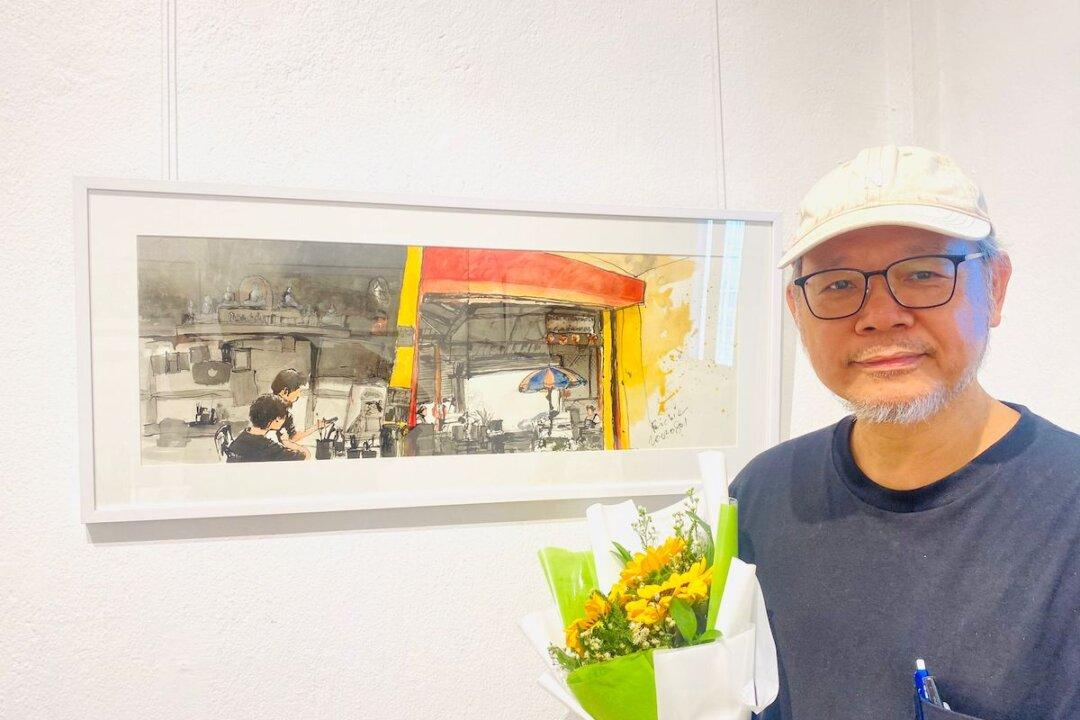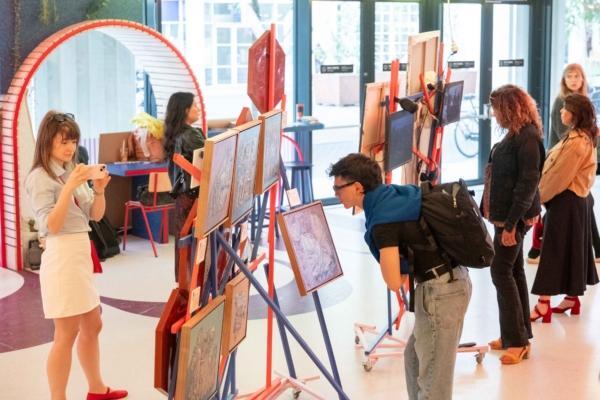Sketch artist Richie Cheung was often seen in the streets of Hong Kong, travelling through the 18 districts and capturing the city’s spirit. Now in his retirement years, he has moved with his wife to Chiang Mai, Thailand, where he continues to embrace life with his paintbrush.
From the Yau Ma Tei Wholesale Fruit Market in Hong Kong, to the Warorot Market in Chiang Mai, Mr. Cheung experienced the same hustle and bustle, yet with a different language and smell. For months on end, this was his favourite place to visit.




